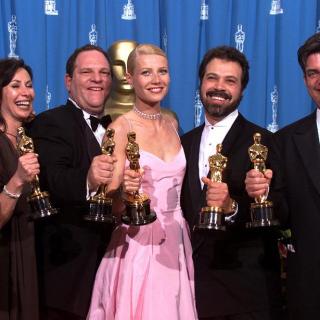
Why It’s Harder To Take Down Sex Abusers In Washington Than In Hollywood
2017-11-22 03'30''
主播: oasisst
2499 14
介绍:
Over the last month, Harvey Weinstein, Louis C.K., Kevin Spacey and other influential men in the entertainment industry have seen their careers all but destroyed because of reports detailing serial sexual predation.
While it took years to corroborate what had been open secrets, once the stories of those men went public, the consequences were swift: movies and television shows canceled, awards and honors rescinded.
The Academy of Motion Picture Arts and Sciences, the voting body for the Oscars, held an emergency meeting to expel Weinstein — striking action from an institution that usually moves at a glacial pace.
Yet as politicians (of both political parties) face accusations of sexual misconduct, it has been much rarer for them to face such dramatic consequences, if any at all.
Perhaps the starkest example of this discrepancy came after the release of the infamous “Access Hollywood” tape last October: Host Billy Bush was fired from his job at NBC’s “Today” show, while reality TV star-turned-GOP presidential nominee Donald Trump — who boasted on the tape that “when you are a star, they let you do it. You can do anything” — was elected president of the United States.
So why has the political realm proved less willing to hand out moral payback? In part because political and ideological stakes are involved.
Voters who choose to overlook moral transgressions do so out of “political calculus” and “expediency,” according to Ellen Bravo, a longtime activist for policies helping women in the workplace.
“Even it it’s true, we have too much to gain by having that person in, and so we’ll put up with it,” she said of voters weighing sexual harassment allegations against their favored candidates.
Alabama Gov. Kay Ivey (R) recently admitted that politics was the key factor in her decision on how handle the scandal that’s erupted in her state’s U.S. Senate election. Even though candidate Roy Moore has faced accusations of sexual misconduct from nearly 10 women, Ivey said she still backs him because ultimately, it’s important that he is a member of the Republican Party.
“I believe in the Republican Party, what we stand for, and most important, we need to have a Republican in the United States Senate to vote on things like Supreme Court justices, other appointments the Senate has to confirm, and make major decisions,” Ivey said.
People are also more likely to dismiss sexual assault survivors if they see their accusations as partisan, said Caroline Heldman, professor of politics at Occidental College. And that is much easier if the accused is already a partisan figure, like a politician.
The accusers are assessed “through the lens of partisanship,” Heldman said, “as in, ‘Oh, maybe this is just a woman from the Republican Party who’s going after a Democrat.’”
Moore has played on this tendency, characterizing the allegations against him as a conspiracy.
“For many of his supporters, they view it as just being a partisan attack, which allows complete dismissal of multiple survivors coming forward, from different periods of time, telling the exact same story or similar stories,” Heldman said.
上一期: Charlie Rose Accused Of Sexually Harassing And Groping Women
下一期: Light pollution: Night being lost in many countries
下一期: Light pollution: Night being lost in many countries
大家还在听

